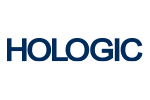ASCP, in collaboration with the Centers for Disease Control and Prevention (CDC), has launched a new initiative to address the laboratory workforce shortage. Through a cooperative agreement with the CDC, ASCP has developed a Negotiation and Advocacy toolbox, aimed at providing clinical laboratory directors with adaptable and practical tools to help demonstrate the value of their laboratories and to better advocate for their needs to C-Suite and hospital administration.
This serviceable resource is specifically tailored to improve coordination and standardization among the laboratory community while strengthening the public health infrastructure overall. The toolbox serves as a vital asset in enabling laboratory directors to emphasize the value(s) of their laboratories to the appropriate decision markers. Through the toolbox, ASCP offers capital, guidance, and best practices to ensure an efficient uniformed laboratory workforce development.
The toolkit will comprise five pillars, with the first two released on Aug. 31, 2023. The additional three pillars are set to launch in 2024.
Each pillar will provide resources on:
1. Laboratory Visibility – will teach laboratory professionals how to plan for communications to promote visibility of the laboratory and gain stakeholder buy in and interest in the laboratory.
2. People and Culture - will teach laboratory professionals how to create the best place to work in pathology and laboratory medicine by cultivating diverse, lifelong learners and engaging and guiding the next generation of laboratory leaders, supervisors, managers, and medical laboratory scientists. This will build a culture of patient-focused laboratory advocates.
3. Quality
4. Service and Growth
5. Financials
We encourage you to use this toolkit and share it with your colleagues. You can access the ASCP Negotiation & Advocacy Toolbox
here.
This resource was made possible by Cooperative Agreement Number NU47OE000107 from the Centers for Disease Control and Prevention (CDC). Its contents are solely the responsibility of the American Society for Clinical Pathology and do not necessarily represent the official views of CDC.
To read more articles from this issue of ePolicy, click
here. To learn more about ePolicy News and access past newsletters and articles, click
here.
For more information regarding ASCP's advocacy initiatives and policy positions, please contact ASCP's Center for Public Policy at (202) 408-1110.

ASCP ePolicy News is supported by an unrestricted grant from Hologic.
